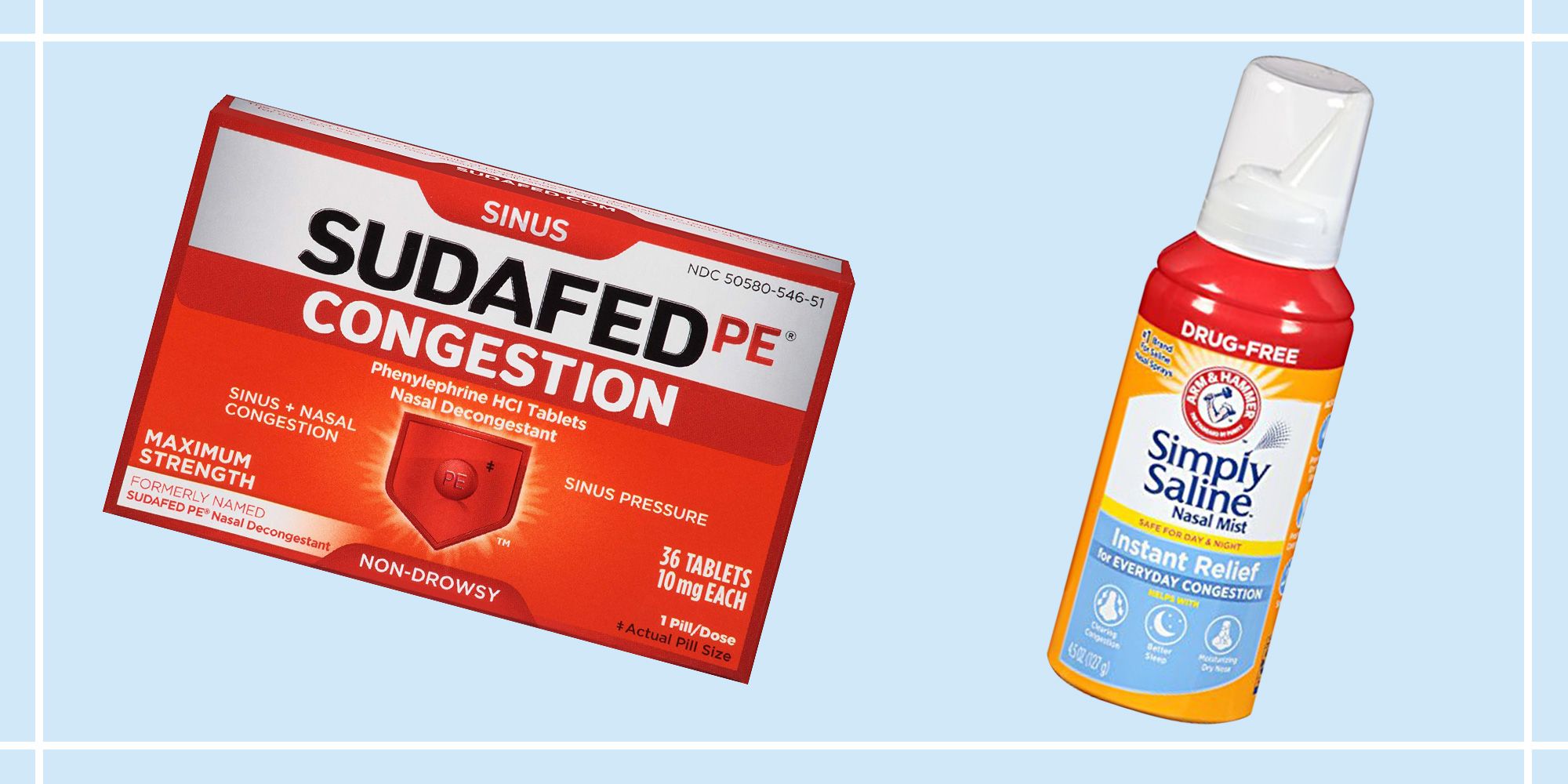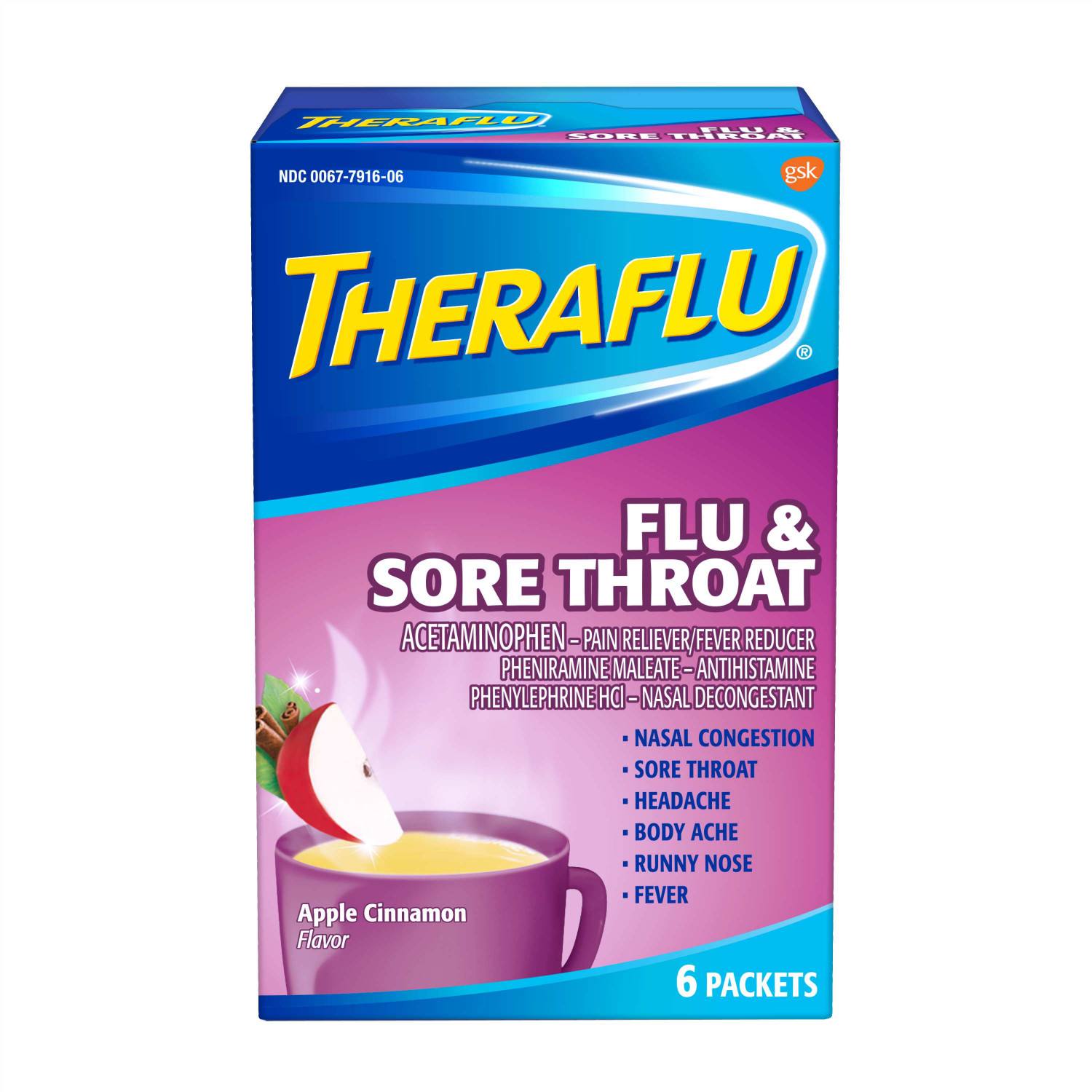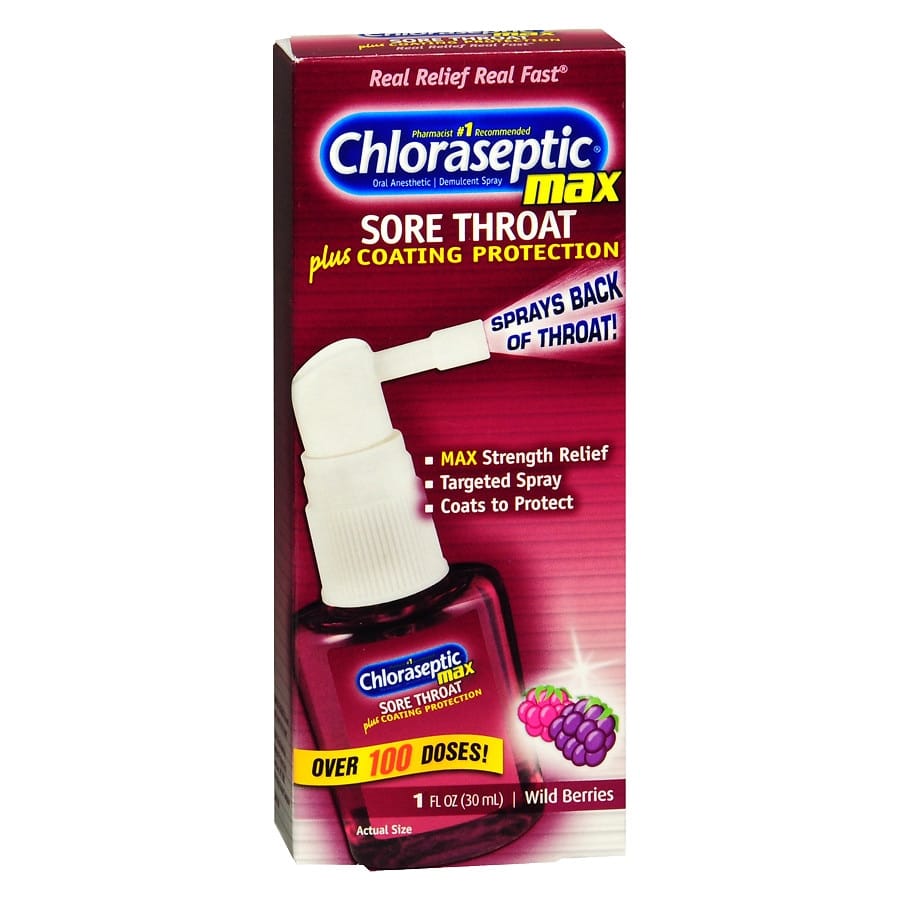Sinus Drainage Sore Throat Treatment
Effective sinus drainage sore throat treatment revolves all around addressing the underlying problem post nasal drip. Sore throat and other symptoms associated with sinus drainage responds well in most cases to the following treatment options:
Antihistamines: Taking over-the-counter antihistamine medications is one of the first line treatment options for sinus drainage caused by allergy. The WebMD website recommends loratadine , desloratadine , fexofenadine , or cetirizine .
: A Short term use of decongestants helps to reduce inflammation and relieve the symptoms of sinus drainage.
The two most commonly used oral decongestants medications are phenylephrine and pseudoephedrine. These are available over-the-counter.
If you suffer from high blood pressure, diabetes, glaucoma, prostate enlargement, and thyroid problems, it is advisable to talk to your doctor before taking decongestants.
As for nasal decongestant sprays, they vary from those containing naphazoline to those containing oxymetazoline, and xylometazoline as the active ingredients.
Saline nasal drops: This helps to flush out irritants from the nose and thin out the mucus.
Antibiotics: If your doctor finds that an infection is responsible for the sinus drainage, s/he will most likely prescribe some antibiotics.
Pain relievers: Over the counter pain relieving medications such as acetaminophen , ibuprofen , and aspirin can also help with pain.
Can Sinus Drainage Cause Sore Throat
You have been getting frequent sinus drainage, have woken up with a sore throat and are now wondering, Can sinus drainage cause sore throat?
Well, the answer is yes, post nasal drip can irritate your throat and trigger sore throat in addition to other symptoms such as coughing, nausea, and stomach upset among others.
We have talked more about sinus drainage sore throat in a subsequent section of this article.
Best Cold Medicine For Runny Nose
A runny nose is one of the ways your body ejects irritants inflaming your nasal passages. A runny nose can also be inconvenient and feel a little bit gross.
If you take a decongestant for a runny nose, your symptoms will get worse before they get better as those types of drugs thin the mucus in your body.
Thats why diphenhydramine might be better for drying up a runny nose. Diphenhydramine is an antihistamine, which means it reduces your bodys natural reaction to irritants and pathogens. It also might make you drowsy, which is why its best to take this medication at bedtime.
You May Like: How Long A Sinus Infection Last
Don’t Miss: Hidradenitis Suppurativa Sinus Tract Formation
How Long Do Symptoms Last
Typically, a sinus infection clears up within 2 to 3 weeks. COVID-19 lasts for about a week or two depending on its severity and your overall health.
A 2020 study surveyed 270 outpatients with COVID-19. Among them, 175 people reported returning to their usual level of health about 7 days after a positive COVID-19 test.
Some symptoms like cough and loss of smell or taste may linger temporarily after COVID-19. Some people may experience long-haul COVID-19, a group of symptoms that persist in the weeks and months following an infection.
Pain Or Pressure In Your Sinuses

Facial pain is a common symptom of sinusitis. You have several different sinuses above and below your eyes, as well as behind your nose. Any of these air-filled cavities can hurt when you have a sinus infection.
Inflammation and swelling can cause your sinuses to ache with dull pressure. This is because inflammation may alter the typical path of mucus from the nose to the back of the throat.
You may feel pain in:
- on either side of your nose
- in your upper jaws and teeth
- between your eyes
This may lead to a headache. Headaches caused by sinus infections can occur where the sinuses are or in other places.
Read Also: Can You Treat Sinus Infection At Home
Sneezing Runny Nose And Watery Eyes
These symptoms are the result of histamine release, which isan immune response to an invading virus. Chlorpheniramine, such as TriaminicAllergy, and diphenhydramine, such as Benadryl, are safe to take duringpregnancy. However, both can cause drowsiness, so these are best taken atbedtime. The maximum dosage for chlorpheniramine is 32 mg in 24 hours.
When compared to placebos, antihistamines have the most successful resultswithin the first couple days of treatment. Patients didnt report any relief ofsymptoms between days three and 10. Newer antihistamines, such as loratadine, are approved for allergies, not colds, so there isnt informationabout how well they work for cold symptoms.
Ayr Saline Nasal Rinse Kit
The Ayr Saline Nasal Rinse Kit is another great choice for people looking for an effective product to combat post nasal drip. Mostly, this product relies on saline, which draws out the mucus by attracting it with salt. Once the accumulated mucus has been pulled out of the posterior portion of the nose and throat, its suctioned out using the included bottle.
While it does offer effective and instant relief against mucus and congestion, the formula isnt quite as powerful as the first name on the list. Without the menthol property, relief doesnt last quite as long, requiring users to repeat the process when mucus accumulates hours later.
Also Check: What To Use For Sinus Infection
Herbal Products And Honey
A number of herbal products are claimed to help relieve cold symptoms. But there’s a lack of reliable studies on the benefits of these products. Some studies have shown that certain extracts of ivy, eucalyptus, primrose, pelargonium and thyme can at best slightly relieve a cough.
The situation with honey is similar: Honey can probably relieve the symptoms of a cough somewhat in children if they take it either pure or dissolved in water in the evening before going to bed .
Products made from echinacea extracts are also commonly recommended for the treatment of colds. They are claimed to strengthen the bodys immune system. But the research on these products has not led to clear conclusions.
When To See A Doctor For Chronic Sore Throat
According to the American Academy of Otolaryngology, its a good idea to see a doctor if a sore throat lasts longer than five to seven days. If youve experienced a consistent sore throat for several weeks, you should consult with a doctor. Diagnosing the cause of a sore throat is often easy and treatment can be very effective, but its important to seek medical attention immediately if you experience any of the following:
- swelling in the throat that makes breathing, talking, or swallowing difficult
- severe pain on one side of the throat
- severely swollen glands
- a lump or obstruction in the throat
Seeing a doctor is the best way to stop your chronic sore throat at the source. Home remedies can be helpful to soothe an irriateted throat, but a doctor will be able to diagnose the root cause and recommend a treatment to help you find lasting relief.
Read Also: What Causes Sinus Congestion At Night
I Have Chronic Sinus Infections And Thus A Chronic Post
When you are suffering from chronic sinus infections, chances are that you are also regularly dealing with a slew of sinusitis symptoms, including post-nasal drip and sore throat. And if your sinus infections havent responded to regular treatment, you may feel out of options. Fortunately, thats not the case.
Balloon sinuplasty is a minimally invasive new sinus treatment that helps restore proper drainage. During the procedure, your sinus doctor uses a tiny endoscopic balloon to widen your nasal passages and open up your blocked sinuses. The procedure takes less than 30 minutes, can be performed in-office, requires very little recovery time, and provides long-term relief. It is a wonderful alternative to traditional sinus surgery, which often necessitates the cutting of bone or tissue.
Sore Throat Home Remedies
Treatments at home are focused on alleviating your symptoms while also supporting immune health so your body can fight the illness. Here are a few tried-and-true sore throat home remedies:
You might try one of these home remedies to find relief. Or implement several remedies to help your body heal as quickly as possible.
Also Check: Advil Cold And Sinus Liquid Gels
Find The Best Cold Medicine Based On Your Symptoms
The common cold is a viral infection that affects the nose and throat. The bad news is that it takes some time to get over a cold, but the good news is that treatment requires just a quick trip to the pharmacy. Cold medicine like decongestants and cough suppressants can help alleviate symptoms such as a stuffy nose or sore throat. Lets take a look at some of the best cold medicines so youll know what to look for if you or one of your family members gets a cold.
Does Apple Cider Vinegar Work For Postnasal Drip

According to anecdotal evidence, apple cider vinegar can help postnasal drip.
Some people breathe in apple cider vinegar by sniffing the bottle. Others drink diluted apple cider vinegar in tea or warm water. The idea is that the strong odor and taste of apple cider vinegar can loosen mucus.
But theres no evidence that this method works. Apple cider vinegar for postnasal drip has never been studied. Additionally, drinking apple cider vinegar can damage your teeth, especially if its undiluted.
If you want to use this remedy, do so with caution.
In addition to home remedies, you can try over-the-counter treatments. These remedies are available at the drugstore or grocery store without a prescription.
Also Check: The Best Over The Counter Sinus Medication
You May Like: Sinus Congestion Due To Allergies
What Is A Sinus Infection Or Sinusitis
Inflammation of the air cavities within the passages of the nose is referred to as sinusitis. Sinusitis can be caused by infection , but also can be caused by allergy and chemical irritation of the sinuses. A sinus infection occurs when a virus, bacterium, or fungus grows within a sinus.
Sinusitis is one of the more common conditions that can afflict people throughout their lives. Sinusitis commonly occurs when environmental pollens irritate the nasal passages, such as with hay fever. Sinusitis can also result from irritants, such as chemicals or the use and/or abuse of over-the-counter nasal sprays, and illegal substances that may be snorted or inhaled through the nose. About 30 million adults have sinusitis. Colds differ from sinusitis and are only caused by viruses and last about seven to 10 days while sinusitis may have many different causes , and usually last longer with more pronounced and variable symptoms.
What Sinus Issues Cause Sore Throat Symptoms
Sinusitis
Sinus infections frequently cause swelling and limit proper airflow through the sinus and nasal air passages. This blockage then causes drainage, congestion and further irritation. When an infection in the sinuses continues or returns for many weeks, it can develop into chronic sinusitis. Sinusitis can be very difficult to diagnose as an underlying cause, but an experienced ENT doctor will be able to address this problem to relieve a sore throat.
Bacterial Infection
Certain bacterial infections are known for having a particular effect on the throat, causing pain and other sore throat symptoms. Some of the most common bacterial infections that can cause sore throat include strep throat, tonsillitis, whooping cough and diphtheria. These infections will need to be diagnosed and treated by a doctor in order to heal and relieve your symptoms.
Nasal Drainage
Nasal issues that irritate the nose and cause extra mucus production or drainage can be at fault for your sore throat. Problems like enlarged turbinates, nasal polyps, and even a deviated septum can cause inflammation, irritation, and ultimately result in the congestion or post-nasal drip that can cause a sore throat.
You May Like: When Do I Need Antibiotics For A Sinus Infection
Also Check: Mucinex Sinus Max Severe Congestion Relief Caplets
How Can Sinus Infections Or Sinusitis Be Prevented
Prevention of a sinus infection depends upon its cause.
- Avoid contracting upper respiratory tract infections. Maintain strict hand washing habits and avoid people who are suffering from a cold or the flu.
- Obtaining the flu vaccination yearly will help to prevent the flu and subsequent infection of the upper respiratory tract.
- In some studies, zinc carbonate lozenges have been shown to reduce the duration of many cold symptoms.
- Stress reduction and a diet rich in antioxidants, especially fresh, dark-colored fruits and vegetables, may help strengthen the immune system.
- Plan for seasonal allergy attacks.
- If a sinus infection is caused by seasonal or environmental allergies, avoiding allergens is very important. If avoidance is not an option, either OTC or prescription medication may be helpful. OTC antihistamines or decongestant nasal sprays can be used for an acute attack.
- People who have seasonal allergies may benefit from nonsedating prescription antihistamines during allergy-season.
- Avoid spending long periods outdoors during allergy season. Close the windows to the house and use air conditioning to filter out allergens when possible. Humidifiers may also be helpful.
- Allergy shots, also called immunotherapy, may be effective in reducing or eliminating sinusitis due to allergies. An allergist administers shots regularly for 3 to 5 years, which often produces a reduction or complete remission of allergy symptoms for years.
Best Cold Medicines For A Stuffy Nose
Topical nasal sprays offer quick relief but may cause rebound congestion with overuse. People should restrict using decongestants to a maximum of 3 consecutive days.
Oral decongestants, including pseudoephedrine and phenylephrine, are effective for the short-term relief of nasal congestion. However, some people may experience side effects from decongestants, such as insomnia or increases in heart rate or blood pressure.
Some cold medicines contain other ingredients, such as antihistamines. People typically use antihistamines for allergies, but because they can cause drowsiness, manufacturers also add them to nighttime cold and flu formulations. This can help people if they have difficulty getting to sleep.
Adding an antihistamine to a decongestant does not guarantee that a person will fall asleep. Also, people should stop using decongestants at nighttime if they find that they cause insomnia.
Doctors do not recommend medicines that suppress a cough for people with a wet cough.
People with a wet cough may take guaifenesin. This is an expectorant that manufacturers claim can help loosen mucus and phlegm.
People with a dry cough, which is a cough that does not produce mucus, may take a cough suppressant. Dextromethorphan is a cough suppressant present in many cold and flu medicines. It acts on parts of the brain to stop a person from coughing.
Sometimes, manufacturers add dextromethorphan to combination cold and flu products, such as all-in-one medicines.
Also Check: What Is Balloon Sinus Dilation
Vicks Vapoinhaler Portable Nasal Inhaler 2 Count
- Provides allergy medicine for sneezing, runny nose, itchy nose or throat, and itchy, watery eyes and cold symptoms like sneezing and runny nose.
- Works when you need it most with an allergy medicine in small, convenient antihistamine tablets that put your allergies to rest.
- 100-count pack of benadryl ultratabs antihistamine allergy relief tablets each containing 25 mg of the antihistamine diphenhydramine hcl for allergy relief that works when you need it most.
- Active ingredient, diphenhydramine hcl, provides relief for hay fever or other upper respiratory allergy symptoms and cold symptoms like sneezing and runny nose.
- Allergy medicine tablets for multi-symptom allergy relief intended to be used by adults and children ages six and up for relief of both indoor and outdoor allergies.
Can A Sinus Infection Cause A Sore Throat
A sore throat can just be a symptom of a common cold that will soon clear up. Other times, however, it can be an indication that you may have a sinus infection.
In this blog, the board-certified ear, nose, and throat doctors with New York ENT explain how a sinus infection can cause a sore throat, as well as other symptoms.
Don’t Miss: Medicine To Clear Sinus Infection
Preventing The Spread Of Colds
Wash your hands often. This is the best way to stop the spread of germs.
To wash your hands correctly:
- Rub soap onto wet hands for 20 seconds. Make sure to get under your fingernails. Dry your hands with a clean paper towel and turn faucet off with paper towel.
- You can also use alcohol-based hand sanitizers. Use a dime size amount and rub all over your hands until they are dry.
To further prevent colds:
- Stay home when you are sick.
- Cough or sneeze into a tissue or into the crook of your elbow and not into the air.
How Is Sinusitis Diagnosed

Often, your healthcare provider can diagnosis sinusitis based on your symptoms and a physical exam. Sometimes other tests are done. These may include:
-
Cultures from the nose
-
Sinus computed tomography . This imaging method uses X-rays and computer technology to make images of the body.
Your healthcare provider will figure out the best care based on:
-
How old you are
Don’t Miss: What Helps A Sinus Migraine
Corticosteroid Drops Or Sprays
Corticosteroids, also known as steroids, are a group of medications that can help to reduce inflammation.
If you have persistent symptoms of sinusitis, your GP may prescribe steroid nasal drops or sprays to help reduce the swelling in your sinuses. These may need to be used for several months.
Possible side effects include nasal irritation, a sore throat and nosebleeds.
Ocean Saline Nasal Spray
When it comes to simplicity and safety, Ocean Saline Nasal Spray is a hard one to beat. This product incorporates very few components and uses salt as its major active ingredient. It draws out the mucus and dislodges accumulated phlegm to clear out the airways.
Ocean Saline Nasal Spray is highly effective, giving instant relief for both adults and children who use the solution. The only issue some users have with the product is that relief duration may vary, especially depending on the extent of congestion.
Recommended Reading: Fastest Way To Beat A Sinus Infection